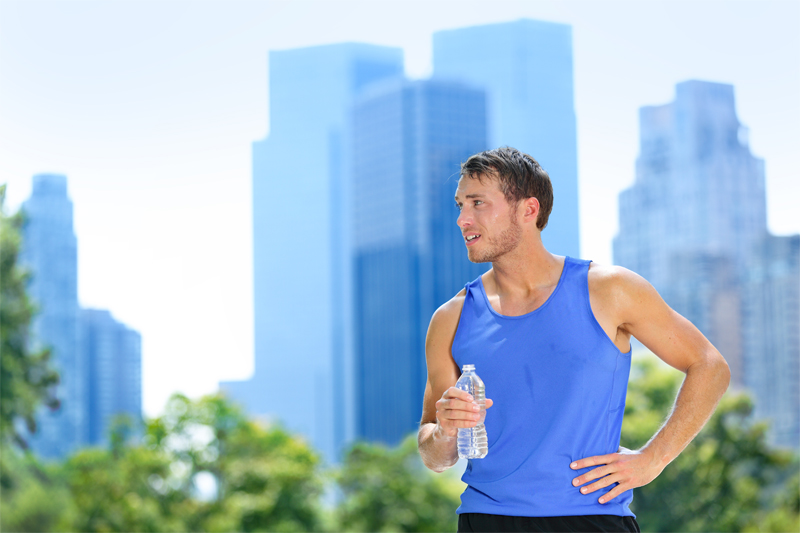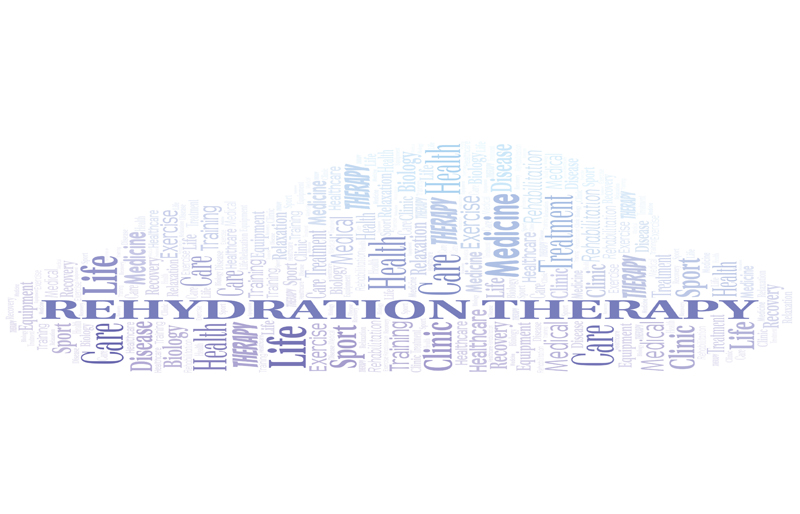 Oral rehydration solution (ORS) is given to dehydrated patients that are usually caused by diarrhea. This therapy aims to replace lost fluid in the body to prevent or treat dehydration. Oral rehydration solution is a combination of water, modest salts (potassium and sodium), and sugar.
Oral rehydration solution (ORS) is given to dehydrated patients that are usually caused by diarrhea. This therapy aims to replace lost fluid in the body to prevent or treat dehydration. Oral rehydration solution is a combination of water, modest salts (potassium and sodium), and sugar.
What are the important benefits of taking oral rehydration solutions? Find out how ORS can help you attain overall health and fitness by reading below.
1. Provide Adequate Body Hydration
The main purpose of giving oral rehydration solution is to hydrate the body. Ideally, the body’s water intake must compensate for water loss through the skin, urine, sweat, and breathing.
However, when there’s too much water lost in the body due to diarrhea, the cells and tissues are depleted with water and nutrients, causing dehydration.
2. Treat Dehydration
The common causes of dehydration include vomiting, diarrhea, fever, excessive sweating, and increased urination. A person who has diarrhea and vomiting loses more fluids and would require extensive oral rehydration therapy. A fever accompanied by diarrhea and vomiting is even a worse condition as it would usually prompt hospitalization.
For fitness enthusiasts, hot, humid weather increases perspiration, making the body lose more fluids. Also, diabetes may increase urination and cause dehydration. Some medications, like blood pressure medications and diuretics or drugs that increase urine production or urination, can also cause dehydration.
If your body doesn’t receive the right amount of water, life-threatening dehydration complications occur, including the following:
- Urinary and Kidney Problems: Repeated and prolonged bouts of dehydration may lead to urinary tract infection, kidney stones (calcium stone formation), and kidney failure.
- Heat Injury: If you don’t take enough water while training, vigorous exercise and heavy perspiration may cause dehydration and heat injury. Mild heat cramps may occur to worsening heat exhaustion.
In the worst condition, the person may suffer from life-threatening heatstroke.
- Seizures: Electrolyte imbalance, such as hypokalemia (low potassium) and hyponatremia (low sodium levels), disrupt electrical messages. It leads to involuntary muscle contractions, causing seizures and loss of consciousness.
- Hypovolemic Shock: It’s also called low blood volume shock, which is considered the most serious and life-threatening complication of dehydration. This is when blood pressure and oxygen levels drop in the body.
3. Promote Improved Focus and Motor Function
It’s important to think before you drink because the content of the beverages you take may affect your focus or concentration. For instance, after a workout, you might be tempted to drink juice, energy drink, or coffee to replenish lost fluids and energy.
However, too much sugar, caffeine, and other additives in beverages may cause more concentrated blood and dehydrated body cells and tissues than expected, which can also cloud focus and cognitive functioning and affect motor function. It’s best to drink water or oral rehydration solution, which is specifically formulated to give the right amount of electrolytes and water your body needs.
Hydration drops are a convenient and effective alternative to water or oral rehydration solutions, providing your body with the essential electrolytes and fluids it needs to function properly. They are especially useful for athletes, busy professionals, or anyone who needs to stay hydrated on-the-go. By simply adding a few drops to your water, you can ensure that you are getting the right balance of nutrients.
Here are the findings of a study about the effects of dehydration on one’s focus and motor function:
- Even a small amount of dehydration impairs a person’s focus, attention, and motor functions. The ability to complete tasks is also affected.
These failures were observed in subjects with a water deficit of about a liter of water or over 2% of their body mass.
- Not drinking anything (water, soup, juice, etc.) for 12 hours can lead to 1% to 2% dehydration. One hour of engaging in moderate exercise may result in 1% dehydration.
- Thirst is sensed when the body loses water at 2%. The study showed that subjects who admitted they were thirsty exhibited signs of cognitive impairment.
- Water intake recommendations are eight glasses (8-ounce) per day. However, you should drink when you’re thirsty and consider your personal needs, too.
4. Attain Better Dental Health
Using an ORS is a smart step you can take to ensure regular body hydration and attain better dental health. Gums dry out after a dehydrating illness, such as the flu. Keeping gums hydrated is important not just after an illness, but also after an athletic event, excessive heat, long periods without fluids, and exertion.
Taking oral rehydration solution is a great way to minimize dehydration’s damaging effects on your dental health, including dry mouth early in the morning. While drinking fluids throughout the day will keep most people hydrated, high-risk populations, like the elderly, children, and people overcoming illness, may need to use an ORS as an effective and quick way to rehydrate.
5. Better Performance
A study compared the effect of a single dose of an oral rehydration solution (ORS) versus sports drink beverage on hydration during exercise. The results tried to show which among the two results in better-informed decisions, safety, and performance among military and WLFF personnel and athletes who exercise in the heat.
The results show no significant difference between ORS and sports drink beverages in attaining fluid balance. Whatever fluid replacement is chosen, the important thing is that the body gets proper hydration. When the body is hydrated, sodium and glucose levels are restored, which leads to better performance.
While sports drink beverages can help the body restore fluid balance, it doesn’t apply to other beverages. As previously mentioned, other beverages may exacerbate dehydration, including caffeinated beverages, like teas, sodas, and coffee.
6. Attain Happier Disposition
Drinking water doesn’t only quench one’s thirst but also satisfies the mood or inner self. It’s one way to cleanse the body and mind while eliminating unwanted high sugars in the body that may affect mood and thinking.
People who drink more water are happier since serotonin production, the so-called happy hormone that’s created from an amino acid, only happens when there’s adequate water. Dehydration negatively impacts other amino acids, which results in feelings of inadequacy, irritability, and anxiety.
Conclusion
Taking oral rehydration solutions help treat and prevent dehydration among people suffering from diarrhea, excessively sweat due to intense physical exercise, or are ill (with fever). Also, oral rehydration therapy can improve focus and cognitive function, boost athletic performance, and complete daily routines.
ORS can also improve your dental health by preventing the gums and oral cavity from drying out, which attracts germs that cause dental problems, like tooth decay. Most importantly, taking ORS and drinking more water can help prevent dehydration and attain a happier life disposition with increased serotonin levels.

